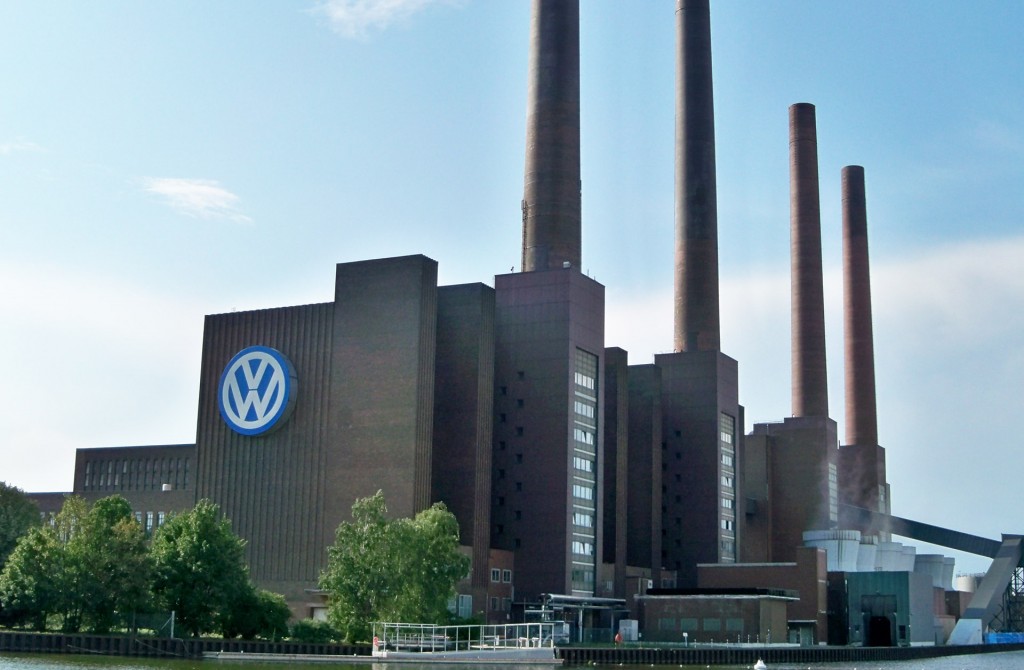German automakers are both famously opaque in their management and remarkably leaky about their future product plans.
And in the wake of the Volkswagen diesel emission scandal, now in its sixth month, VW Group has been turned upside down, shaken, and stirred.
But will the changes be enough to break the company's historic arrogance and top-down culture, and ensure that such a thing can't happen again?
DON'T MISS: What Ordinary Germans Think About VW's Diesel Emission Scandal
That's a question that's quietly discussed among industry analysts and automotive journalists.
While it's one that can only really be answered in the fullness of time, at least one experienced writer has gone on record with his skepticism.
The industry is still assessing how adeptly Toyota and General Motors handled their unexpected-acceleration and ignition-key scandals, respectively, over the last five years.

Volkswagen plant
But thus far, the reaction to the scandal from VW Group headquarters in Wolfsburg, Germany, has been less than stellar.
Several of the company's most senior executives, including CEO Martin Winterkorn, resigned within weeks of the scandal breaking in mid-September.
But VW's German communications and public-relations efforts have been notably tone-deaf since then, likely exacerbated by different expectations of corporate behavior in the U.S. and in Germany.
ALSO SEE: VW To Release Diesel Cheating Report April 21, Annual Meeting Postponed
With emission standards more lax in the European Union than North America, and a stronger market position for VW, the modifications required to millions of TDI diesel cars are far less onerous in European countries.
In December, new VW Group CEO Matthias Müller met with U.S. senators and representatives critical of the carmaker, as well as with Environmental Protection Agency chief Gina McCarthy and U.S. Commerce Secretary Penny Pritzker.
Two months later, more than half a million North American owners of TDI four- and six-cylinder diesel vehicles from VW, Audi, and Porsche still know nothing more about changes to their cars than they did five months ago.

Matthias Müller
VW's first plan to modify the 482,000 four-cylinder cars that contain "defeat device" emission software was rejected by the California Air Resources Board as insufficient and lacking in detail about the fuel-economy and performance impacts of the proposed changes.
Following that, Volkswagen AG replaced the head of its U.S. legal department and said it would open a dedicated office in Washington, D.C.
Still, from the outside, it is unclear that all VW top executives yet grasp all the realities on the ground in North America.

2015 Volkswagen Golf TDI
CEO Müller told reporters in December he expected an agreement "in days or weeks" with CARB and the U.S. Environmental Protection Agency. That didn't happen.
Then Müller denied to a National Public Radio reporter at the Detroit Auto Show that the company had lied about emissions software--a blatant untruth.
The company later attributed his misstatement to confusion from the noise and clamor of reporters in the "scrum" after his appearance.
CHECK OUT: VW Diesel Scandal Index Page: All Green Car Reports Coverage
VW is sticking by its date of April 21 to release the results of its internal investigation into how the cheating occurred, conducted by law firm Jones Day.
But it had to postpone its annual shareholder meeting, originally scheduled for the same day, due to continuing uncertainty over the financial impact of the scandal.
The company identified a planned $2 billion in cost savings back in November, but its statistics remain daunting.
As Daniel Howes of The Detroit News pointed out two months ago, VW Group's employment is almost three times that of General Motors, which has 212,000 workers worldwide.
Each company produced roughly 10 million vehicles last year.

2015 Volkswagen Golf TDI SE
But the German state of Lower Saxony has long owned 20 percent of VW, and its main goal is to sustain employment in the region. The Piech and Porsche families have a controlling share in the rest of the company.
Howes suggests that VW "has never seen anything quite like this," and that the paternalism of the state and the controlling families may not be capable of controlling what happens to the company.
He closes by noting that VW faces not only antagonism from its owners, their lawyers, and regulators in multiple countries, but also from "politicians, shareholders and labor interests deeply invested in a culture no longer right for these times."
Howes is not optimistic that the company can change sufficiently to balance the demands of those multiple constituencies.
Read the piece.
_______________________________________













